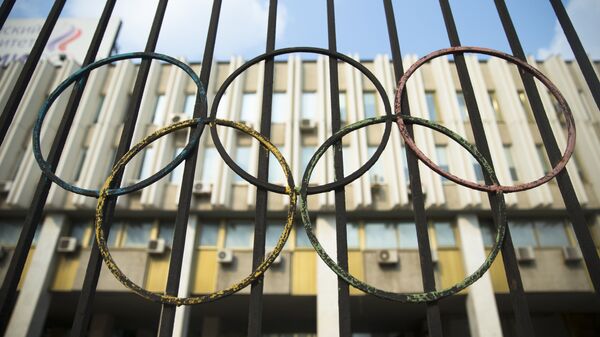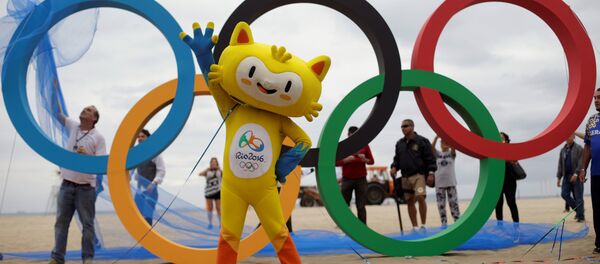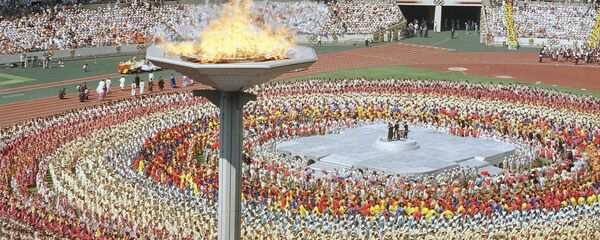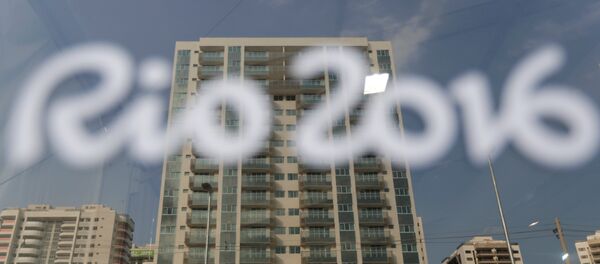"The IOC will not accept any entry of any Russian athlete in the Olympic Games Rio 2016 unless such athlete can meet the conditions set out below. Entry will be accepted by the IOC only if an athlete is able to provide evidence to the full satisfaction of his or her International Federation (IF) in relation to the following criteria: the IFs should carry out an individual analysis of each athlete’s anti-doping record, taking into account only reliable adequate international tests, and the specificities of the athlete’s sport and its rules, in order to ensure a level playing field," IOC said in a statement.
"The ROC [Russian Olympic Committee] is not allowed to enter any athlete for the Olympic Games Rio 2016 who has ever been sanctioned for doping, even if he or she has served the sanction," the IOC stated.
WADA informant Stepanova banned from 2016 Olympics
The IOC Executive Board decided to deny the request of Russian track and field athlete and World Anti-Doping Agency's (WADA) informant Julia Stepanova for a permission to take part in the 2016 Olympics, citing an advice of the IOC Ethics Commission.
According the IOC statement, the Ethics Commission noted that despite Stepanova’s contribution to promotion of clean athletes, the Rules of the Olympic Charter run counter to the recognition of the status of neutral athlete. Furthermore, the fact that she denounced the doping practices which she had used herself "do not satisfy the ethical requirements for an athlete to enter the Olympic Games."
"The IOC EB accepted the advice of the IOC Ethics Commission, also taking into consideration its above-mentioned decision not to allow any Russian athlete who has ever been sanctioned for doping to participate in the Olympic Games Rio 2016. Therefore, the IOC will not enter Mrs Stepanova as a competitor in the Olympic Games Rio 2016," the statement said.
Russia's reaction to IOC decision
Russian Sports Minister Vitaly Mutko said that the IOC decision on participation of Russian athletes in the 2016 Rio Olympics was balanced and objective.
"The decision made by the IOC was balanced; based on the report of the WADA independent commission, it is objective and benefiting global sport and unity of the Olympic family. We are grateful to the IOC for such a decision," Mutko told R-Sport.
"Of course, the decision of the Executive Committee of the IOC is difficult for us, while the Olympic Games 2016 are set to start so soon…. In this case, the application of the Russian team is available, it is very necessary to quickly renegotiate it with international federations and I am sure that most of the international federations have no issues with Russian athletes," Mutko said.
Mutko also highlighted that Russia was ready to reshape its anti-doping system under supervision of an independent committee, adding that he was sure that the majority of Russian athletes were absolutely clean.
IAAF offers advice to sport federations on Russian athletes
The International Association of Association of Athletics Federations (IAAF) President Sebastian Coe said that IAAF was ready to give advice to any international sport federation concerning admission of Russian athletes.
"We have created and been through the process. We know how hard it is emotionally and rationally to get the process right. I have offered the help of the IAAF team to ASOIF [Association of Summer Olympic International Federations] and we continue to stand by to assist and offer advice to any international sports federations," Coe said in a statement.
Earlier in July, the IAAF prohibited all Russian athletes from taking part in international competitions, including the upcoming Rio Olympics, except long jump athlete Darya Klishina, who trains in the United States.




